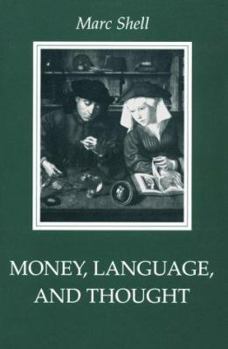Money, Language, and Thought: Literary and Philosophic Economies from the Medieval to the Modern Era
Select Format
Select Condition 
Book Overview
In Money, Language, and Thought, Marc Shell explores the interactions between linguistic and economic production as they inform discourse from Chretien de Troyes to Heidegger. Close readings of works such as the medieval grail legends, The Merchant of Venice, Goethe's Faust, and Poe's The Gold Bug reveal how discourse has responded to the dissociation of symbol from thing characteristic of money, and how the development of increasingly symbolic currencies has involved changes in the meaning of meaning.
Pursuing his investigations into the modern era, Shell points out significant internalization of economic form in Kant, Hegel, and Heidegger. He demonstrates how literature and philosophy have been driven to account self-critically for a money of the mind that pervades all discourse, and concludes the book with a discomforting thesis about the cultural and political limits of literature and philosophy in the modern world.





